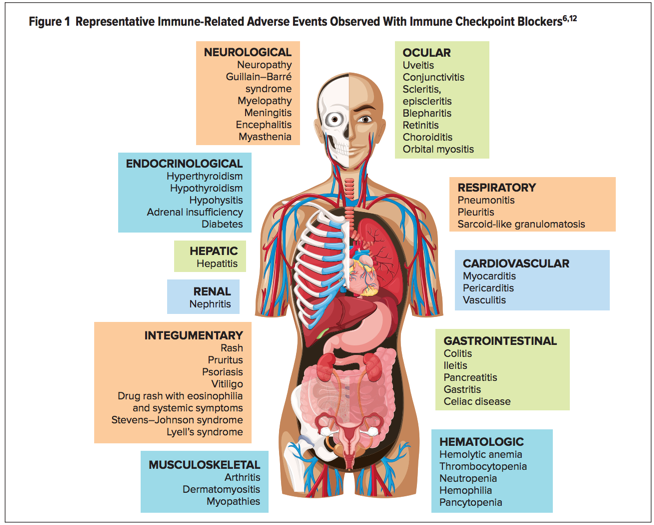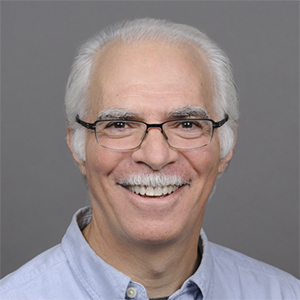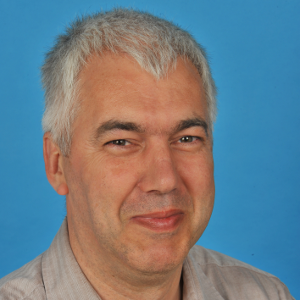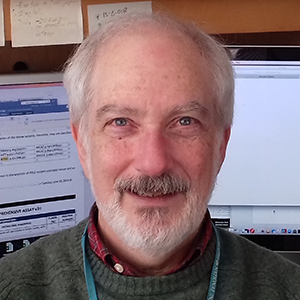Session Abstract – PMWC 2019 Silicon Valley
Session Synopsis: Due to their potential for severe adverse effects, it is essential to determine at the earliest time possible who is actually benefiting from universal or personalized immunotherapy (predicted via biomarkers like PDL1, MSI and TMB) or whether it needs to be adjusted or stopped. This session will focus on this complementary monitoring strategy.
Session Chair Profile
Ph.D., Director of Scientific Affairs, Digital Biology Center, Bio-Rad Laboratories

Biography
Dr. George Karlin-Neumann is the Director of Scientific Affairs at Bio-Rad’s Digital Biology Center, formerly Quantalife. There he is helping to drive the research and clinical adoption of digital genomic technologies through collaborations and internal research programs. He joined QuantaLife in 2010 as Sr. Director of Molecular Diagnostics where he contributed to the development of what has become Bio-Rad’s highly successful QX200 Droplet Digital PCR System. A molecular geneticist and biotechnologist by training, in 2001 he co-founded the high throughput genomics company, ParAllele BioScience, out of the Stanford Genome Technology Center. It was acquired by Affymetrix in 2005 where he continued developing state-of-the-art assays for cancer copy number variation and for pharmacogenomic profiling. He received his PhD from UCLA in 1990 for innovative studies using conditional lethal mutant screens in Arabidopsis and then continued related work during a postdoctoral fellowship with Dr. Ronald Davis in the Stanford Biochemistry Department. Prior to leaving Stanford to found ParAllele, he spent five years as the co-PI on an NSF-funded Plant Sensory Network Consortium grant where he developed and disseminated DNA microarray technology to partnering institutions.
Speaker Profile
MBBS, Medical Oncologist, Senior Lecturer, Macquarie University

Biography
Dr Jenny Lee is a medical oncologist and the clinical lead at the Precision Cancer Therapy Laboratory, led by Professor Helen Rizos. Her current research focuses on circulating biomarkers and immunotherapy response, with recent publications in Annals of Oncology and JAMA oncology. Her other research areas include the development of predictive models of melanoma recurrence in patients who have undergone curative surgery in stage III melanoma and discovering mechanisms of treatment resistance to immune checkpoint inhibitors. She completed her medical degree at the University of New South Wales and undertook her specialist medical oncology training at Westmead Hospital in Sydney. When she is not seeing patients or slaving away in the laboratory, she can be found at the gym or relaxing by the beach.
Speaker Profile
Ph.D., Clinical Scientist in Molecular Pathology, University Medical Center Groningen

Biography
Three decades his research focuses on the identification of prognostic/predictive epigenetic and molecular markers for clinical outcome, response to chemo-radiotherapy, gene-targeted therapy and treatment-resistance in lung, GIST, head&neck cancer, as well as the early detection of cervical cancer in scrapings. More recently his interest expanded to monitoring plasma ctDNA as a bloodborne-based molecular tool to predict response to targeted and immune-therapy. He is heading the laboratory of Molecular Pathology offering the latest innovative methods for treatment-decision-making in the region North-Netherlands. Since 1997 he is active in (inter)national committees and advisory boards on implementing Molecular Pathology, the organisation of international proficiency mutation testing in lung tissue biopsies and plasma ctDNA, and co-authored various international guidelines on Molecular Pathology. He graduated in Medical Biology in 1985 and PhD in 1993 in Molecular Biology (University of Amsterdam). He worked as a staff clinical scientist in Molecular Pathology at LUMC (1991-2000) and UMCG (2001-now).
Speaker Profile
M.D., Head, Molecular Diagnostics Section, Laboratory of Pathology, NCI, NIH

Biography
Dr. Raffeld received his M.D. from the Abraham Lincoln School of Medicine of the University of Illinois. He completed clinical training in pathology at the Brigham and Women’s Hospital in Boston and at the Hematopathology Section of the Laboratory of Pathology (LP), NCI. He was appointed to the laboratory’s permanent staff in 1989. Dr. Raffeld is responsible for the Laboratory of Pathology’s Molecular Diagnostics Unit. Dr. Raffeld’s research interests are concerned with the molecular pathogenesis of lymphomas and the use of molecular and immunohistochemical markers in lymphoma diagnosis.







